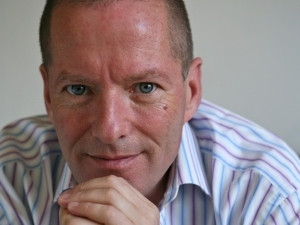
Online learning allows students from all walks of life to get an education.
This is the word from University of the People (UoPeople) president and founder Shai Reshef, who chatted to ITWeb last week during a visit to SA.
With more than 20 years' experience in education, Reshef realised the value of online education after starting the first online university outside the US. "For far too many people, education is akin to wishful thinking."
Reshef was in SA to recruit students as part of the institution's partnership with Microsoft. The software firm is offering 4Afrika scholarships to 1 000 UoPeople students in Africa. He is confident as many as 200 of the 1 000 scholarships will go to students from SA.
"I am in SA to tell students that they have this educational opportunity. I do believe there is a lot of possibility in South Africa," he said, noting that he is also in the region to look for sponsors who can assist students who cannot afford exam fees.
"The idea is to select the best students and to give them the skills to become the future leaders of the continent," said Reshef. "Einstein only became Einstein because he was given the opportunity to do so."
According to Reshef, all the factors that make higher education inaccessible - particularly cost - can be alleviated through the smart use of technology. While online learning can be tougher than face-to-face learning, studies have shown that it is just as effective, he noted.
UoPeople is a non-profit, tuition-free, degree-granting online university that aims to bring democracy to higher education, he said, adding that the institution is focused on computer science and business administration. The only costs students have to pay are exam fees, Reshef pointed out.
As a free institution, it relies heavily on open source technology, open education resources and the kindness of a large group of volunteers, he continued. Reshef highlighted that the online university has been endorsed by leading academics from institutions like Yale and Oxford, among others, and has also partnered with other corporates such as Hewlett-Packard and Google.
Reshef acknowledges that many students in Africa lack reliable Internet connectivity; he notes that the tuition material can be accessed via a mobile device or at Internet cafes. "While we cannot solve the problems for those who have no Internet connectivity whatsoever, we are available to those who have even the most limited connectivity," he said.
In one instance, the UoPeople built centres in Haiti for students who lack Internet connections, something they would be keen to roll out in other regions with the help of corporate sponsors, he said.
"I don't believe there is any better reason for the invention of the Internet than to spread knowledge. Education is one of the best ways to make an impact in the world," he concluded. "When you educate one person, you can change their life, but when you educate many, you can change the world."
Share